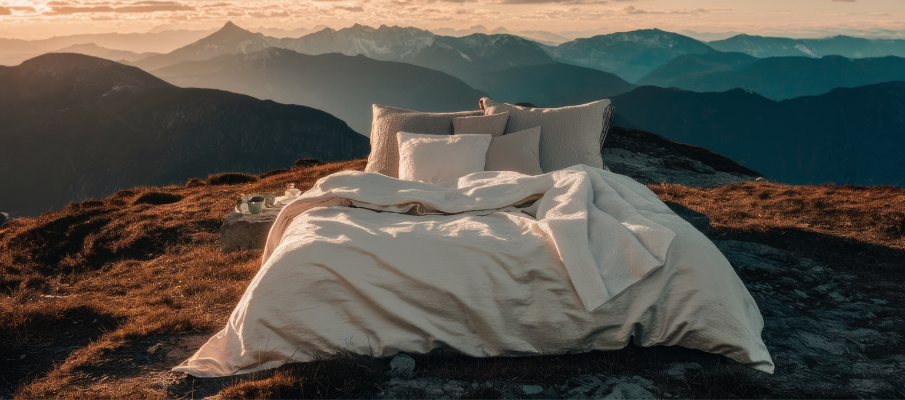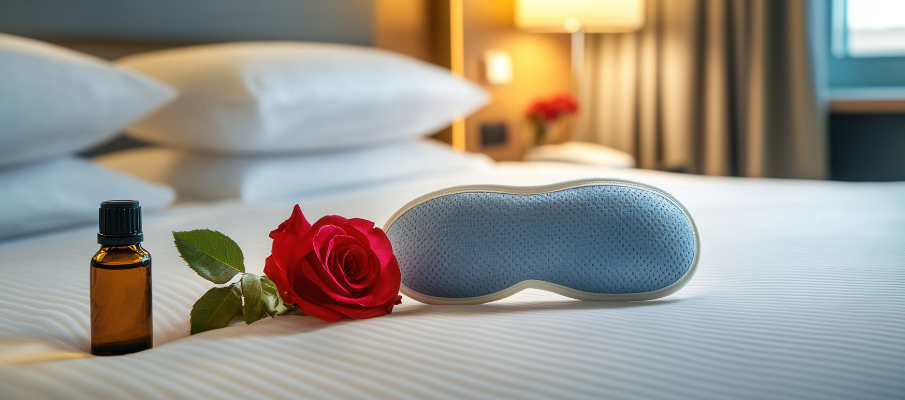Sleep Tourism: Wake Up to the Opportunity
By Tomahawk on

In recent years, a fascinating new trend has emerged in the tourism industry – sleep tourism. Far from simply being a buzzword, sleep tourism caters to travellers who prioritise rest and relaxation, seeking experiences that promote deep, restorative sleep. This shift reflects a growing global awareness of sleep's role in overall health and wellness, prompting travellers to seek destinations that offer unique opportunities for rest and rejuvenation. For tourism businesses, this trend opens up a host of opportunities to attract a new market of wellness-minded travellers.
More Than a Bed for the Night
Sleep tourism is a branch of wellness tourism, appealing to those looking to reset, recharge, and combat the stresses of modern life. Unlike conventional travel, sleep tourism isn’t about cramming as many experiences into a short trip as possible. Instead, it’s about slowing down, disconnecting from the hustle and bustle, and creating an environment conducive to high-quality sleep.
Destinations around the world are already jumping on board with specialised sleep programs, tailored accommodation, and unique offerings designed to maximise relaxation. From high-end resorts and luxury spas to glamping sites and boutique hotels, any tourism business can tap into sleep tourism with a few strategic adjustments.
While there is a definite skew towards the luxury retreat sector, we believe there is still huge potential for sleep tourism to attract travellers with lower budgets - it's more about providing an environment that is conducive to a great sleep regardless of your star rating!
Why Sleep Tourism is Booming
The rise of sleep tourism is tied to several broader trends in health and wellness. Increasingly, travellers are looking to disconnect from digital noise, rebalance their sleep schedules, and address sleep disorders such as insomnia, anxiety-related sleep issues, or general fatigue from busy lifestyles. According to recent studies, the average adult’s sleep quality has diminished over the years, often due to the constant pressure of digital connectivity and work-life imbalance. As travellers seek respite, they’re willing to invest in experiences that promise genuine rest.
5 Tips to Attract 'Sleep Tourists'
Whether you run a resort, boutique hotel, or eco-lodge, tailoring your services to meet the needs of sleep-focused travellers can provide an edge in today’s competitive tourism market. Here are some practical ways tourism businesses can appeal to sleep-conscious visitors:
1. Create Calming, Sleep-Inducing Environments
Sleep tourism is about more than providing a place to sleep—it’s about creating an environment that invites restful sleep. Consider enhancing guest rooms with high-quality mattresses, blackout curtains, soundproofing, and adjustable lighting. Offering sleep-enhancing amenities like weighted blankets, lavender-infused pillows, or aromatherapy diffusers can create a soothing atmosphere that encourages relaxation.
Investing in serene interior design, calming colour palettes, and natural materials can also make a difference. A minimalist, clutter-free space is often seen as more relaxing, promoting a “less is more” aesthetic that appeals to the wellness-minded traveller.
2. Offer Personalised Sleep Programmes
Personalised sleep programs are becoming a staple in the sleep tourism market, offering a structured approach to help guests relax and unwind. For example, consider offering services such as guided meditation, yoga sessions, or sound therapy that help guests transition into a restful state of mind. Some hotels have even introduced dedicated sleep concierges, whose role is to advise guests on sleep-friendly activities and offer personalised tips to improve their nightly rest.
If budget permits, partnering with sleep specialists, dietitians, or wellness coaches can add significant value. These professionals can help design programs tailored to different sleep needs, from jetlag recovery plans to deep relaxation therapies.
3. Promote Digital Detox Packages
A key component of sleep tourism is escaping digital distractions. Encourage guests to disconnect from their devices by promoting digital detox packages that allow them to fully unplug. Some tourism businesses even offer "digital-free" rooms or packages where devices are either restricted or encouraged to be left at the front desk. These packages often include activities like stargazing, nature walks, and journalling—activities that help guests focus on mindfulness rather than screen time.
Digital detoxing isn’t just beneficial for sleep; it’s a growing trend among travellers who seek respite from constant connectivity. Promoting your accommodation as a place where guests can truly disconnect may resonate deeply with those struggling to find balance in a hyper-connected world.
4. Provide Sleep-Friendly Food and Beverage Options
Diet plays a significant role in sleep quality. Consider enhancing your menu to include sleep-promoting foods and drinks, such as herbal teas, warm milk, or light, easily digestible dinners. Partnering with nutritionists to design a “sleep-friendly” menu can be a valuable addition for guests who are serious about their rest and wellness.
Offering evening snacks with in-room service like chamomile tea, mixed nuts, or small servings of honey can also promote a soothing night’s sleep. By carefully crafting a menu that supports rest, you can differentiate your establishment and build brand loyalty among wellness-oriented travellers.
5. Host Special Sleep and Wellness Retreats
Consider hosting sleep and wellness retreats that bundle several sleep-enhancing services into a multi-day experience. This can include everything from yoga and meditation sessions to breathing exercises and sleep workshops led by experts. Such retreats often attract guests who are deeply invested in improving their sleep and overall well-being, providing a unique experience that goes beyond typical accommodation offerings.
You could also partner with wellness and sleep experts, or therapists to design a retreat that educates guests on sleep health. With guided practices, workshops, and specialised sleep assessments, these retreats can become transformative experiences that encourage guests to revisit your destination in the future.
Marketing Strategies for Sleep Tourism
When marketing sleep tourism services, it’s essential to speak directly to the needs and desires of the sleep-focused traveller. Here are some tips:
- Emphasise Wellness: Highlight how your offerings contribute to wellness and relaxation, making a clear link between sleep quality and overall health.
- Use Calming Visuals: Use imagery that reflects peace, relaxation, and nature in your marketing materials. Soft colour schemes, serene landscapes, and peaceful settings can communicate the restful experience guests can expect.
- Leverage Testimonials and Case Studies: If you’ve had guests report improved sleep quality after staying with you, consider sharing these testimonials. Real stories can provide powerful social proof that reinforces the effectiveness of your sleep-focused offerings.
- Promote on Wellness Platforms: Partnering with wellness-focused influencers or platforms can help you reach a targeted audience. Collaborate with wellness blogs, influencers, and magazines that cater to travellers seeking sleep and wellness experiences.
- Offer Package Deals: Consider offering special sleep packages for guests who book multiple nights, making it financially attractive for them to extend their stay and immerse themselves fully in your sleep-promoting environment.
Embracing Sleep Tourism
As sleep tourism continues to gain traction, tourism businesses that respond to this trend will find themselves in a strong position to attract a growing market of wellness-minded travellers. By designing sleep-friendly experiences and environments, investing in personalised wellness programs, and marketing effectively, businesses can cater to guests who value quality sleep as much as they value adventure.
Embracing sleep tourism not only opens up new revenue streams but also strengthens brand reputation by showing a commitment to guest well-being. As the wellness tourism market expands, sleep tourism offers a unique way for your business to stand out, creating restful, rejuvenating experiences that keep travellers coming back.
Want to learn more? Check out this podcast from The Hustle Daily.
Intrigued by the potential of sleep tourism? Let's chat! We'd love to explore this further and discuss how we can elevate your property's sleep experience.


